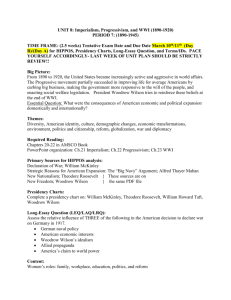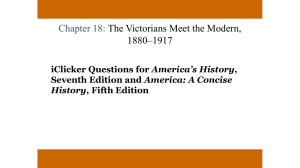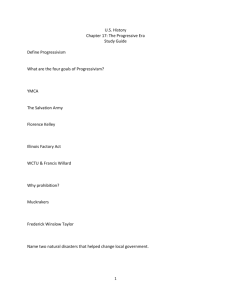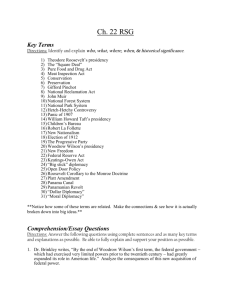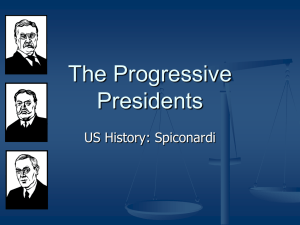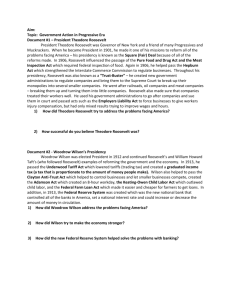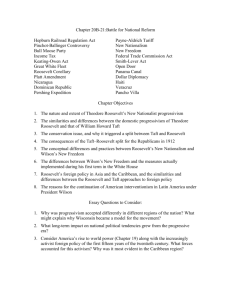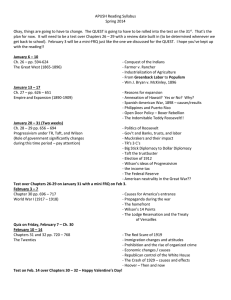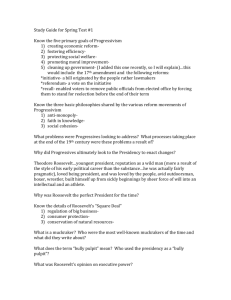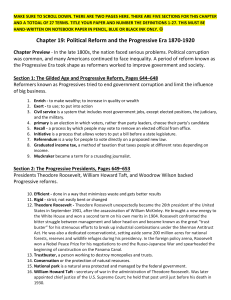Honors United States History Progressivism #3: National
advertisement
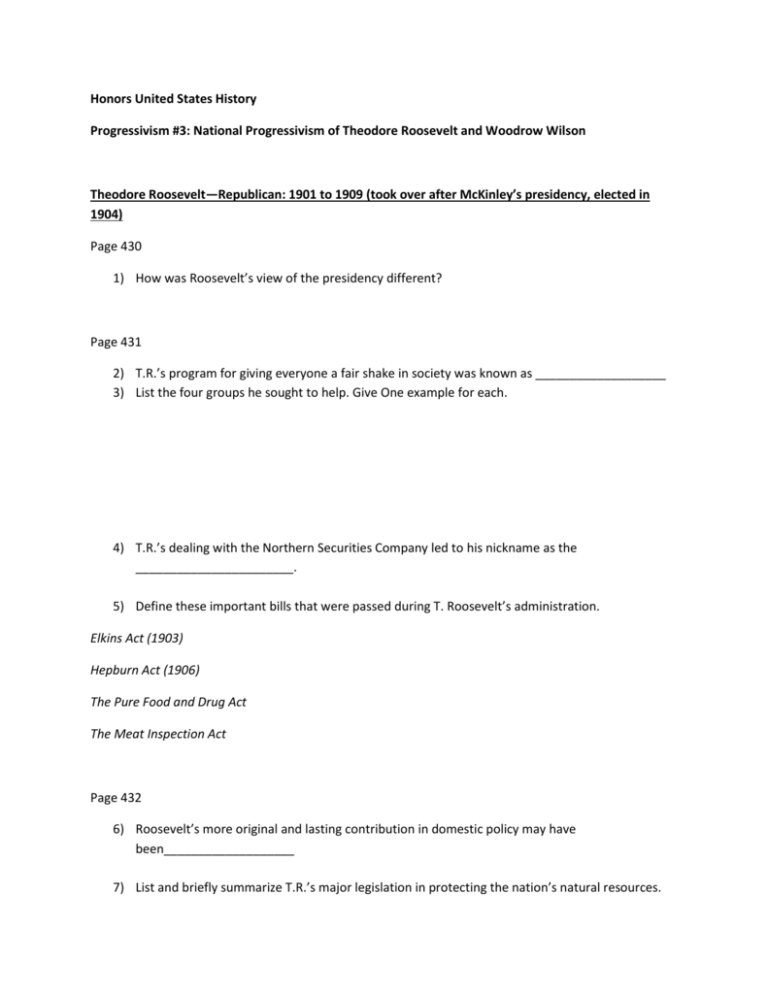
Honors United States History Progressivism #3: National Progressivism of Theodore Roosevelt and Woodrow Wilson Theodore Roosevelt—Republican: 1901 to 1909 (took over after McKinley’s presidency, elected in 1904) Page 430 1) How was Roosevelt’s view of the presidency different? Page 431 2) T.R.’s program for giving everyone a fair shake in society was known as ___________________ 3) List the four groups he sought to help. Give One example for each. 4) T.R.’s dealing with the Northern Securities Company led to his nickname as the _______________________. 5) Define these important bills that were passed during T. Roosevelt’s administration. Elkins Act (1903) Hepburn Act (1906) The Pure Food and Drug Act The Meat Inspection Act Page 432 6) Roosevelt’s more original and lasting contribution in domestic policy may have been___________________ 7) List and briefly summarize T.R.’s major legislation in protecting the nation’s natural resources. William Howard Taft—Republican: 1909 to 1914 (Elected in 1908) Woodrow Wilson--Democrat: 1913 to 1921 (Elected in 1912 and 1916) Page 432 and 433 8) Although William Howard Taft did bust trusts, why isn’t he considered a progressive president? 9) Why was the Socialist Party significant during the early 20th Century? Page 435 and 436 10) Once in office, what were the first issues that Woodrow Wilson tackled? 11) What was the title of Wilson’s domestic program?____________________ 12) Define (when and what) the following major bills passed during Wilson’s presidency. Clayton Antitrust Act Federal Trade Commission Federal Farm Loan Act Federal Reserve Act Underwood Tariff Child Labor Act
